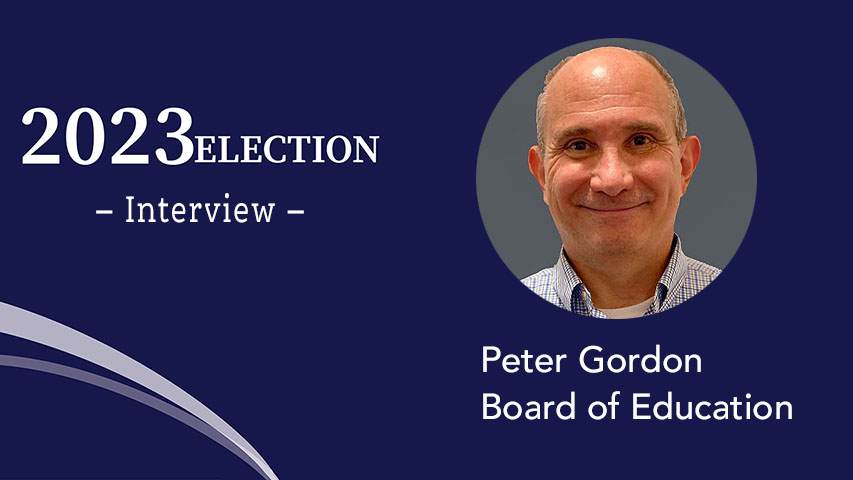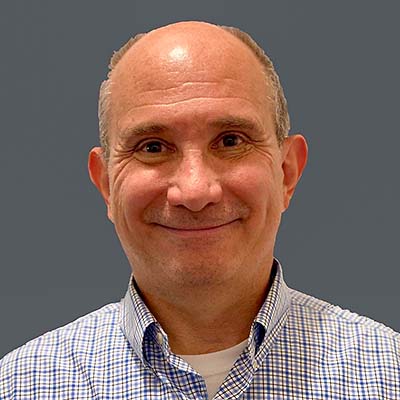Peter Gordon, Board of Education

 Peter Gordon is a Republican candidate for the Board of Education and a current member of that board. He is an engineer, with expertise in the application of ultraviolet light to air, surface, and water disinfection.
Peter Gordon is a Republican candidate for the Board of Education and a current member of that board. He is an engineer, with expertise in the application of ultraviolet light to air, surface, and water disinfection.
Mr. Gordon is proud of his role on the Board in sharpening the focus on facilities and buildings in the near term, as well as chairing the Educational Optimization Committee, which is planning for the long term.
“I’ve helped the administration take a much closer look at near-term repairs and refurbishment with a focus on early return on investment,” he said, citing as an example improvements to HVAC systems. He credited other Board members for collaborating to accelerate the process, together making an impact.
“It’s an important part of oversight and governance,” he said, “because the expenses are adding up.”
The long-term planning, said Mr. Gordon, “will take a big group effort and a lot of intense analysis on where to take the campus, what we need to reallocate, what we need to reconfigure, and what we need to re-imagine.”
“What we do with the facilities, the buildings, and the campus is synergistic with what happens inside the buildings,” said Mr. Gordon. “You can’t do one without the other. In fact, focusing on what happens inside the buildings over the long term may be more important than focusing on construction and refurbishment.”
One aspect that will be heavily emphasized, he said, is sustainability. “Not just decarbonization. It’s really about sustainable curriculums for the future, sustainable facilities, sustainable building health and gardens … whatever we find would be good for the well-being intellectually, physically, and emotionally for students and staff and the community. Because it’s clear that’s where the future is for our kids, in every respect.”
Mr. Gordon is also pleased with how, in his time on the Board, the review of the administration’s work and goals has been improved.
He said the district “may be slightly top heavy” at the moment, but it may be a result of efforts to stabilize after a major transition of senior leadership.
“We were a little underpowered a couple of years ago. We needed to stabilize HR, security, finance, and the number of teachers, because we were missing some. We may able to streamline a little bit at some point.”
On the topic of school security, Mr. Gordon said the district has a comprehensive plan based on extensive study. With the hiring of a security director and new physical measures, he said, “we’re a lot better off than we thought we were six months ago. The Police Department can advise us wisely. The administration and Board will heed their advice. If it comes to adding resources at the elementary schools, that’s what we will have to do.”
Regarding test scores and rankings, Mr. Gordon said “we’re way ahead of the curve for our DRG (District Reference Group) in many areas. That doesn’t mean we sit still. We need to be driven, driven, driven.”
“Test scores are a pretty slippery metric,” he said. “Not because they’re not real, but because we have a small sample size, and the metrics aren’t holistic,” not a reflection of the complete experience from K to 12.
Mr. Gordon had specific thoughts on improving test results. “One thing we have to work on is absenteeism of staff and of kids. I bet if kids spent one more week in school and teachers were one less week absent, test scores would go up. Absenteeism kills learning.”
“But the missing piece,” he said, “is the parents. There is a spectrum that runs from indifferent to helicopter parents. I don’t know how we change that as a school board or district, but if you want to drive up test scores, parental involvement is critical. Only parents can drive the message that success begets success.”
